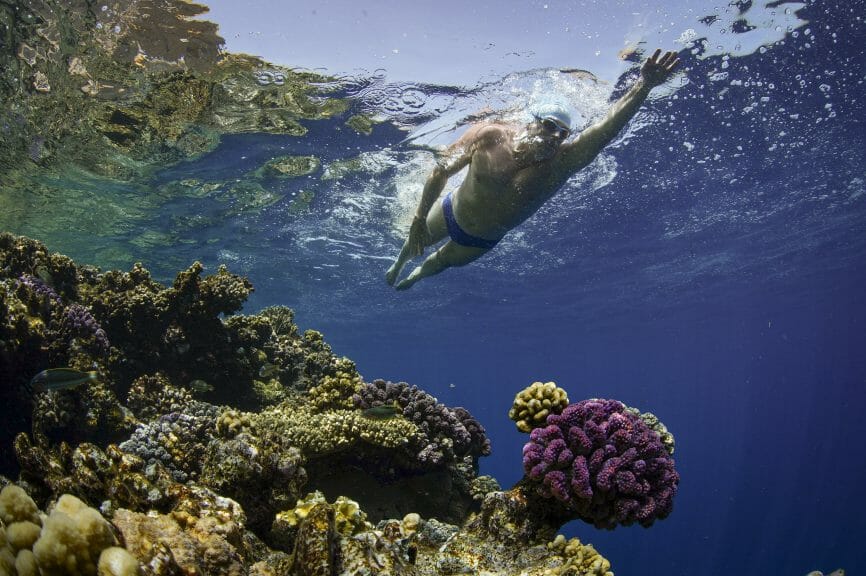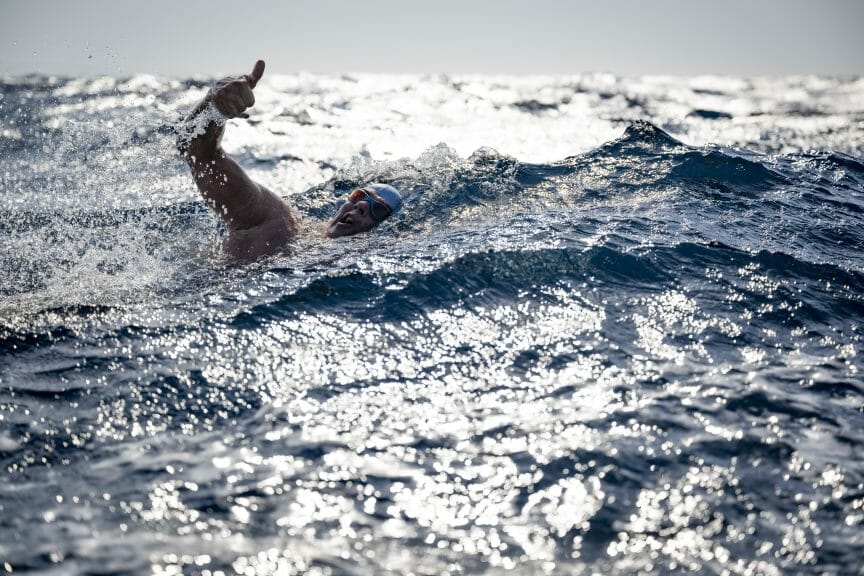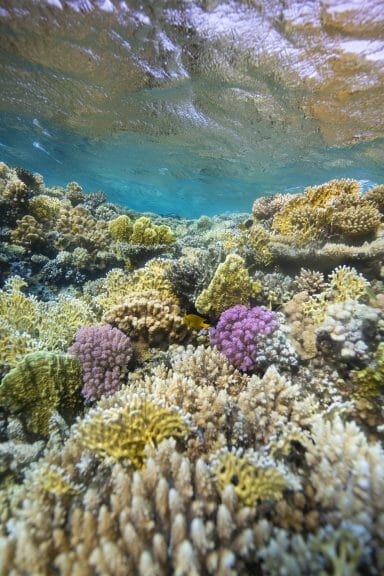On Wednesday the 26th of October at 13:00, Lewis Pugh successfully completed his 123km swim across the Red Sea.
He swam from Tiran Ireland, Saudi Arabia, to Hurghada, Egypt.
The swim took a total of 16-days and, as well as making history, the real purpose of the challenge was to raise awareness of the speed of Climate Change ahead of COP27 which begins on the 6th of November.
The Red Sea is home to some of the world’s most biodiverse coral reefs which Pugh swam over as well as of of the busiest shipping lanes in the Gulf of Suez.

The UN COP27 conference is due to take place in Sharm-el-Shiekh next week. At the conference, Pugh will urge all nations to drastically cut their admissions. He will also call for at least 30% of the world’s oceans to be protected by 2030. Currently, less than 8% are protected.
Who is Lewis Pugh?
Lewis Pugh is an endurance swimmer and UNEP Patron of the Oceans.

He was the first person to complete a long-distance swim in every ocean of the world and in his role champions the need to protect our oceans.
Pugh has helped protect 2 million km2 of vulnerable oceans and is now working on protecting 30% of oceans by 2030. 128 nations have joined this call making it the largest conservation drive in history.
Pugh will stress to leaders during COP27 the vital role healthy oceans play in mitigating the climate crisis.
For the Red Sea swim the Lewis Pugh Foundation partnered with HEPCA– the Hurghada Environmental Protection and Conservation Association. HEPCA is a group of scientists, divers, industry members, and community members who are all passionate about protecting the resources of the Red Sea.
“I always envisioned the Coral Swim as a gathering of swimmers from the region coming together to protect the Red Sea”
Lewis Pugh
On days 1-3 of the swim Pugh was joined by Dr. Mariam Saleh Bin Laden who is a pioneering open-water swimmer and humanitarian. She became the first Arab, the first Saudi, and the first woman to swim from Saudi Arabia to Egypt.
On day 3, Egyptian swimmer Dr. Mostafa “Zodiac” Zaki” joined the swim. Pugh says “Mostafa played such a crucial role… he drove me forward and kept me motivated.” Commenting on Pugh, Mostafa said, “Lewis is such a role model.”
The Coral Reef and Climate Change
Scientists predict that if we heat our planet by more than 2 degrees Celsius, 99% of coral reefs will die. We are currently on track for at least a 2.2 degrees Celcius increase.
Coral Reefs support 25% of all ocean life and are the most biologically diverse ecosystem on Earth.
The Pugh foundation wants to highlight that if we lose our coral reefs we will lose an entire ecosystem.
Half the world’s coral reefs are believed to have died since the 1950s due to warming sea temperatures, combined with overfishing, pollution, and reef disturbance.
Researchers have found that the coral reef in the Red Sea is more resilient to warming and acidification than coral in other places.
If temperatures continue to rise, the coral reef in the Red Sea could be the last surviving coral on Earth.

With the rate of Climate Change only increasing, something needs to change in order to stop natural landmarks and important sites such as the coral reef from dying. Read here what the brand Patagonia is doing to try and help.














